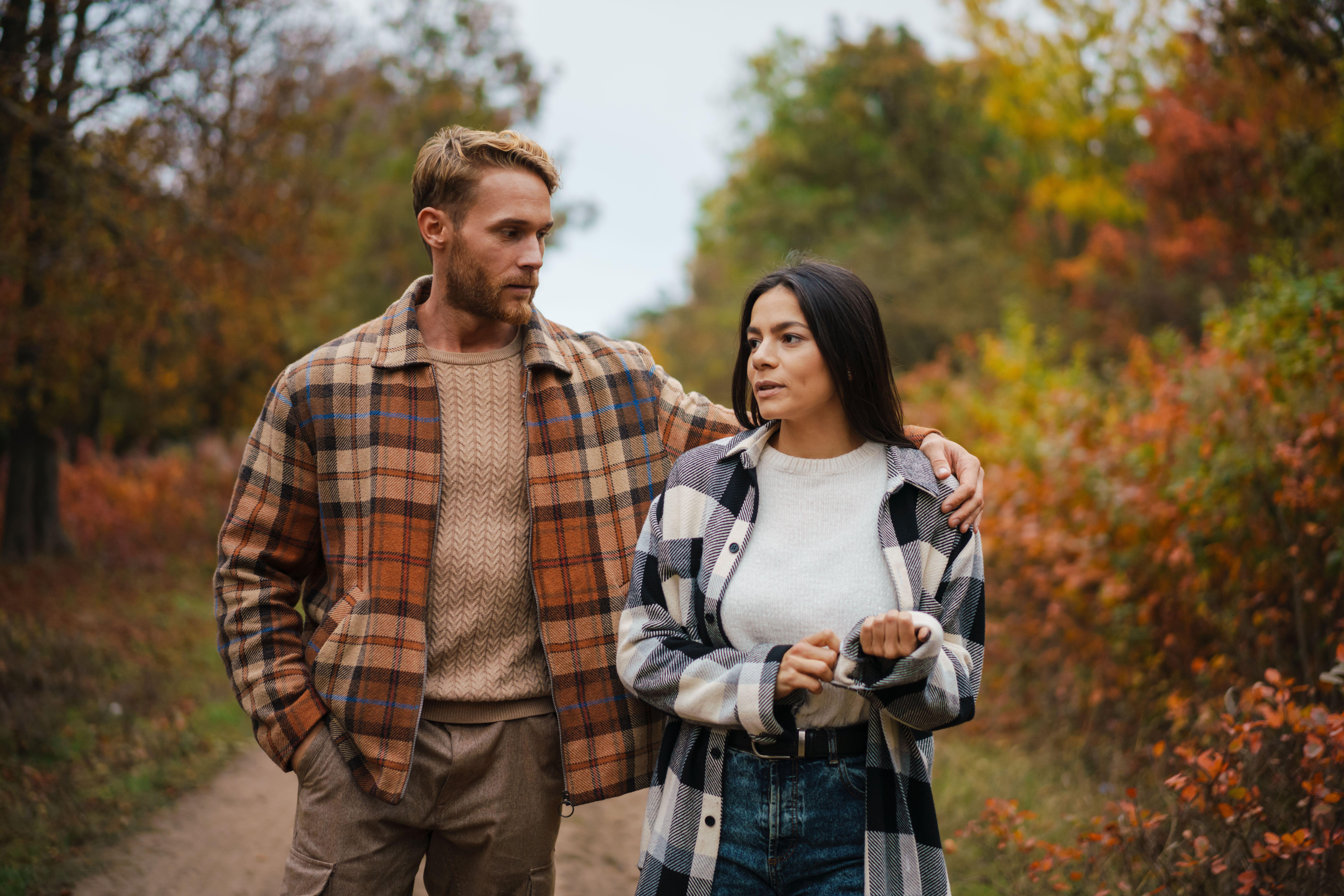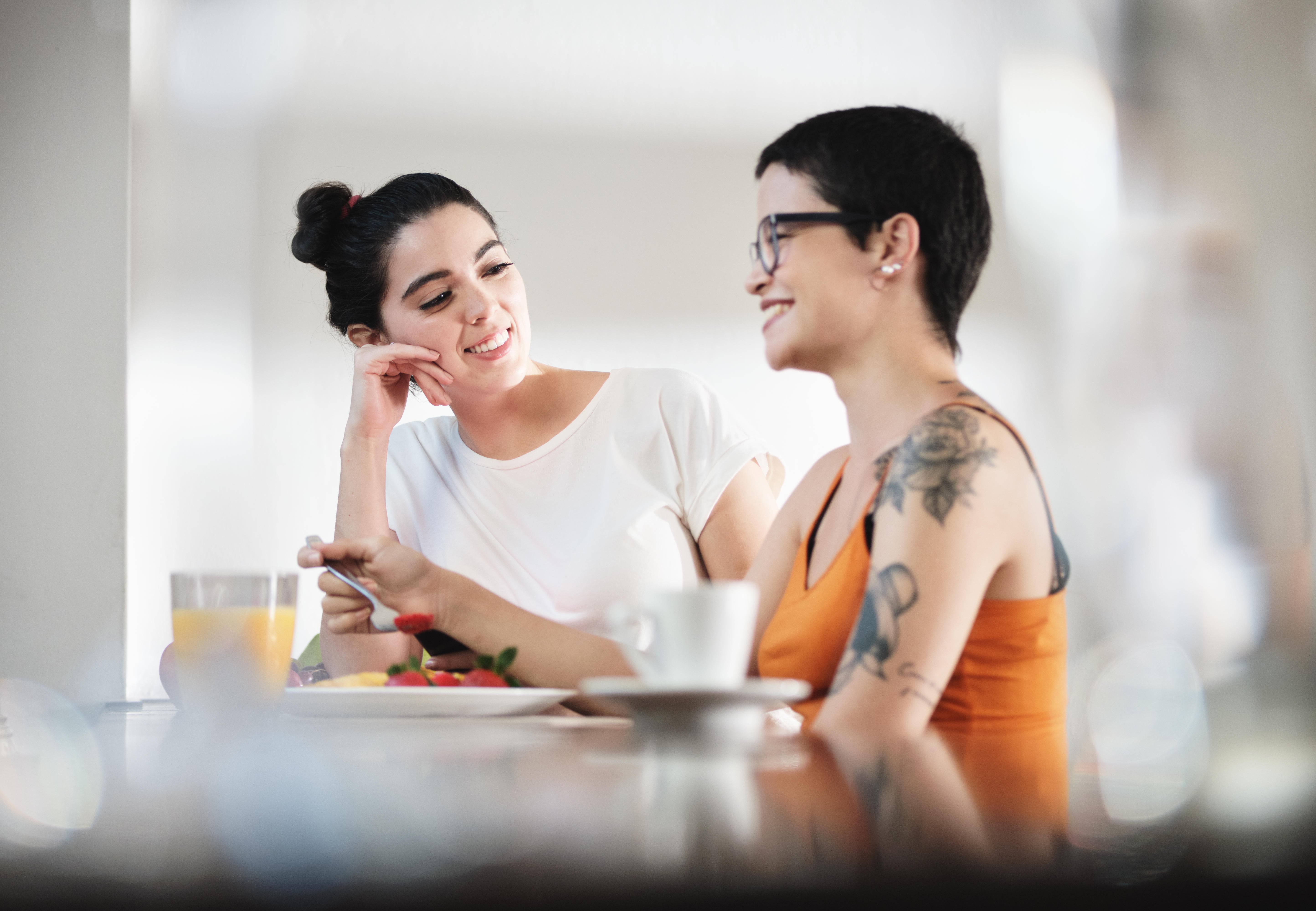My partner wants an open marriage – what should I do next?
Ethical non-monogamy is on the rise

There’s been a rise in ethical non-monogamy, that is, an arrangement between romantic partners that’s different from the traditional monogamous one. An open relationship can mean sex with other people or additional romantic relationships. So, what would you do if your spouse suggests this route?
BACP-registered relationship therapist Charlotte Monk says such a conversation is bound to evoke “a myriad of thoughts and emotions” and offers her advice for couples exploring the option.
“This situation requires careful handling, as it can trigger insecurities, fears, resentment as well as passion, intrigue and sexual fantasy,” she says.
“You could reflect on the idea that marriage in modern society is expected to fulfil a number of key roles, which are often contradictory in their very nature: stability yet spontaneity, commitment and emotional safety yet sexually dynamic and passionate, financial security and family responsibility, yet allowing space to embrace and express the self.
“For some couples, the venture into an open marriage can ease some of these societal pressures and indeed ignite an Eros that was starting to burn out. I wonder, what could openness in the marriage be representing? Emotional intimacy, sexual desires, an exploration of the self, social stimulation? Being curious about each other and having a shared meaning will encourage ongoing open, honest communication.”
How to talk about it
It is, of course, vital to establish if you are both on the same page, says Monk.
“If only one person wants to have an open marriage and the other feels coerced or obliged to agree, then it will cause huge problems that can lead to the breakdown of the relationship. Mutual respect is a core prerequisite to a healthy open relationship.
“Have a brave, candid conversation about why you want an open marriage,” she suggests. “What are the positives you imagine and what desires are you seeking to fulfil? Equally, share your deepest fears and concerns.”
One-sided non-monogamy – when one person stays monogamous but the other explores other options – can be possible, she says, “but the monogamous partner must feel like they are a valued voice in detailing the boundaries that will act to protect the equality, trust and intimacy of the marital relationship”.

What if can’t agree?
“If there is a strong difference of opinion, then seeking relationship counselling with a trained and registered professional, who is accepting of non-monogamous relationships, can be really useful to explore these intricacies in a safe, confidential, non-judgemental space,” Monk says.
If you both agree to an open marriage, she says it’s “paramount” to have a conversation exploring and agreeing rules and boundaries in depth, that will protect each person physically and emotionally.
“Physically, you might consider exploring safe sex practices, contraception, whether your home space is used or kept just for yourselves, and what intimate behaviours are OK to engage in with others – are there any that are kept solely for yourselves, or is it a no holds barred situation?”
Emotional safety is another area of importance. “Consider asking each other: do you want to know about each other’s partners and whereabouts, or would you rather not know all the details? Do you want to be able to call your partners to chat, text each other or go on dates? Do you share details about your marital relationship? Will you say: ‘I love you’? How much time or money will be allocated to spend with partners and on activities?”

Don’t be afraid to, or avoid having, the difficult conversations and check in regularly with each other, she suggests. “No one is immune to jealousy, resentment, hurt or insecurity. If these can be shared with your spouse then you stand a better chance of maintaining a deep, empathic connection and shared vulnerability, which prioritises your marital partner and the relationship you share. If these feelings are left to fester, the damage can be irreparable.”
Monk believes that a carefully negotiated and agreed open marriage “can be wonderfully affirming, creating an environment that encourages freedom of expression, stress reduction and contentment”.
She says: “This openness can create a greater appreciation for your spouse. However, it’s certainly not for everyone and one-size does not fit all.”
If you are considering an open relationship, there is an abundance of resources online, books, communities and relationship therapists that will help you to make an empowered decision.
To find a therapist registered with the British Association for Counselling and Psychotherapy visit www.bacp.co.uk.